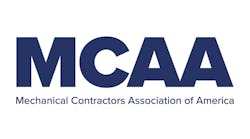Latest from Around the Web
Sponsored
KANSAS CITY, MO — On the second day of the third annual Construction Working Minds Summit in Kansas City, 450 attendees celebrated the release of a new report that delves into the critical issue of mental health and well-being in the construction industry. Construction is plagued with the highest rates of suicide, addiction, and overdose of any industry.
The white paper traces the development of efforts aimed at improving construction worker well-being and presents much needed recommendations for industry stakeholders, workplace well-being advocates, service providers, researchers, and policymakers, according to the authors.
From Awareness to Action
“In just a short period the industry has moved from awareness to action to now strategy and culture change,” said Dr. Sally Spencer-Thomas, a report coauthor, President of United Suicide Survivors International (US) and co-chair of the summit, which is the only national/international conference on construction mental health and suicide prevention.
The Construction Industry Alliance for Suicide Prevention and US cohost the Construction Working Minds Summit. The content of the white paper is based largely on input from the attendees of the 2023 event, including conversations among them. The theme that year was “Building Out The Mental Health Movement: Moving From Awareness To Impact in Mental Health And Suicide Prevention.”
Listening to Industry Voices
Chase Plank, Workplace Programs Manager for United Survivors is also a coauthor of the white paper. “What is innovative about this approach in part is literally having those in the industry designing and shaping these much needed interventions themselves, which will help in its effectiveness,” he said. “We are excited for a future where construction will scale up significant strides in improving the mental health and well-being of its workforce, ultimately fostering a safer, more supportive, and sustainable industry for all stakeholders,” Plank continued.
The report will help achieve specific objectives including raising awareness of unique mental health challenges faced by construction workers. “It offers evidence-based and evidence-informed approaches to address workers’ mental health challenges, and will help advance development of effective programs and initiatives to support workers' well-being and reduce tragedies like addiction, overdose, and suicide,” said Cal Beyer. An independent consultant specializing in human risk management and worker well-being, Beyer is one of the report authors and co-chaired the 2022 and 2023 summits with Spencer-Thomas.
The paper discusses the strengths and successes in the construction worker well-being movement along with barriers and obstacles to overcome top priorities identified. “It will also serve as a tool to advocate for change and a way to prioritize action steps,” said Spencer Thomas.
To download a copy of the white paper, visit www.constructionworkingminds.org.


